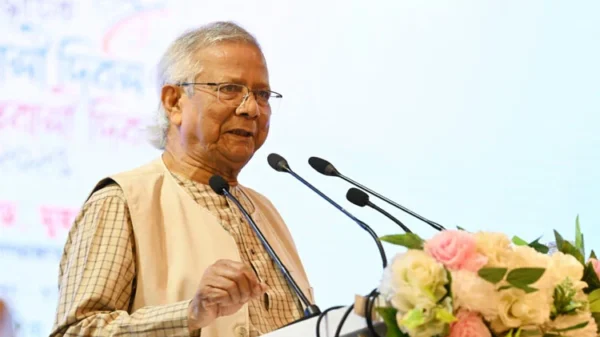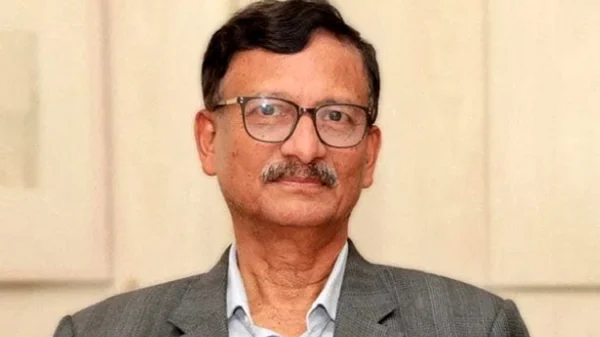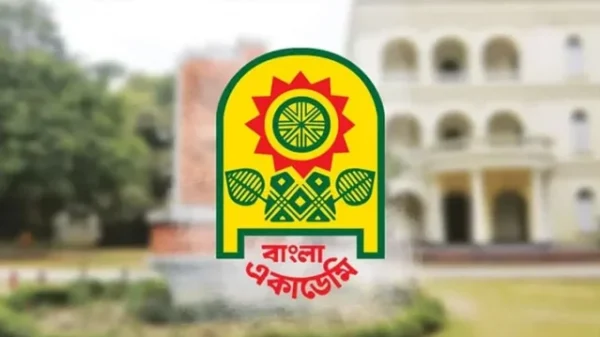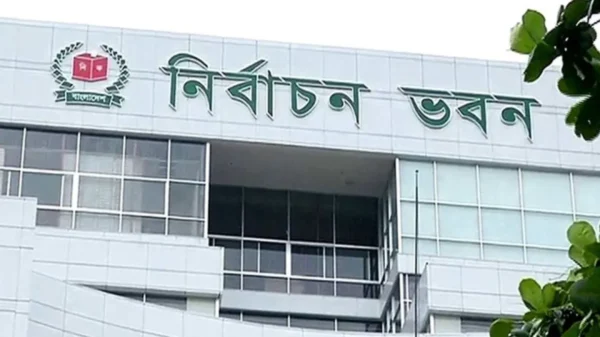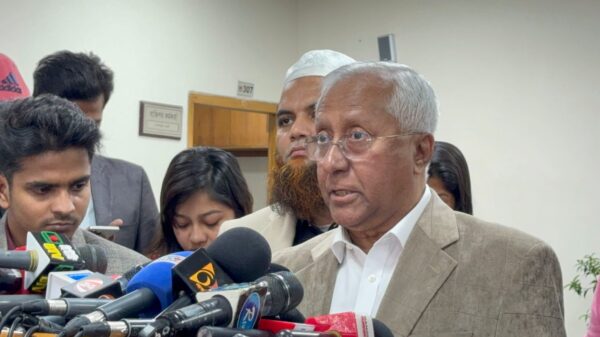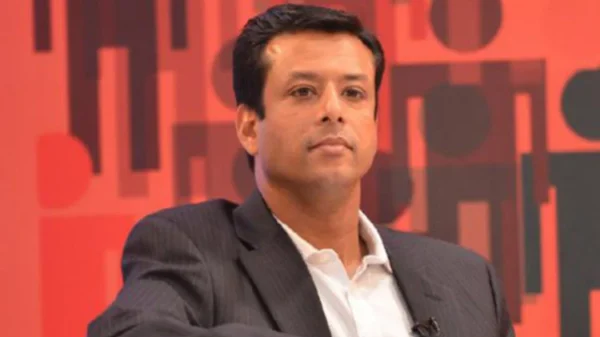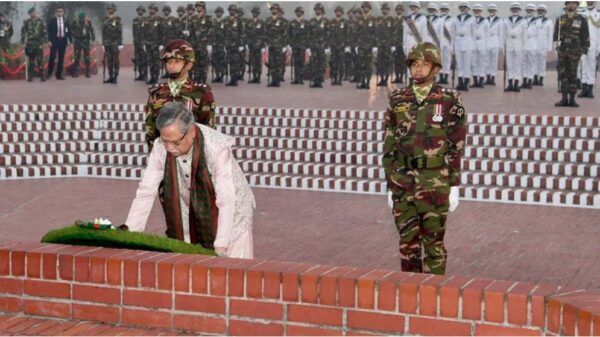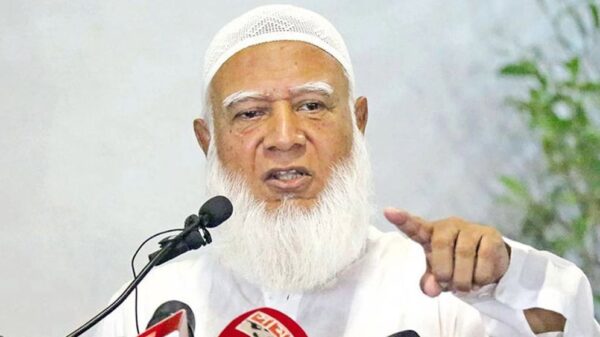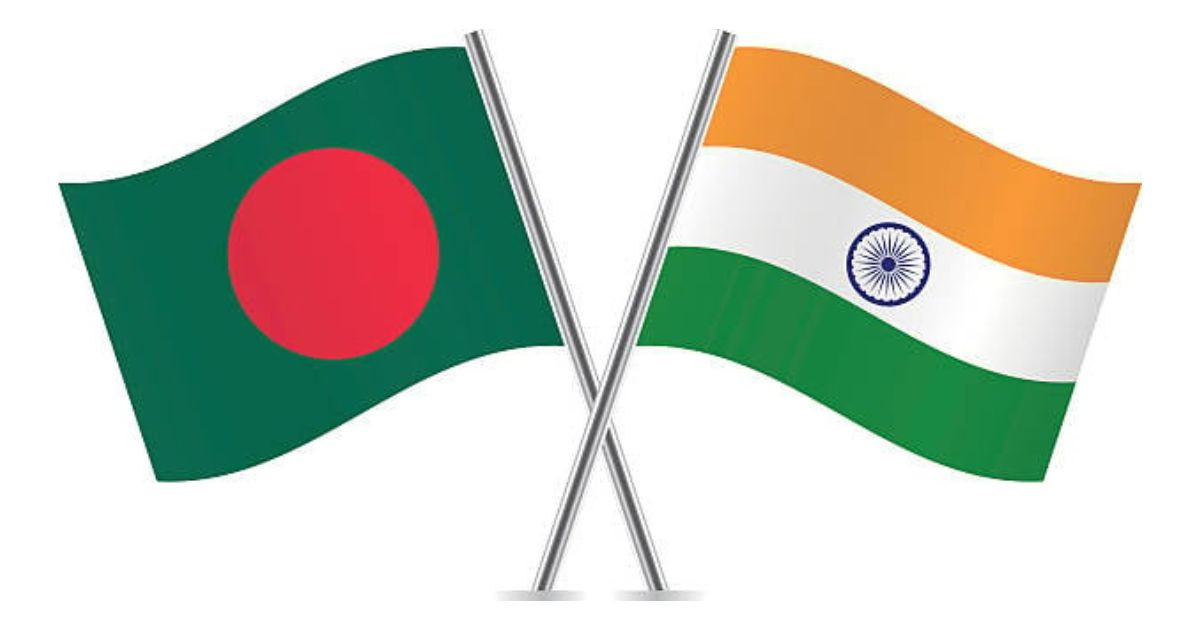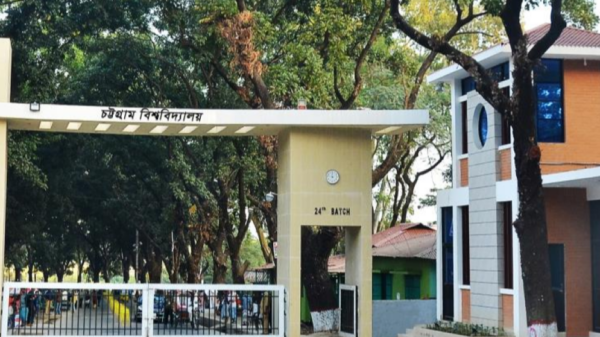Staff Reporter:
India on Thursday reaffirmed that it would continue to work with Bangladesh’s interim government to fulfil the “shared aspirations” of the people of the two countries and in keeping with respective national pride.
At the weekly media briefing in New Delhi, the Ministry of External Affairs spokesperson, Randhir Jaiswal, also said in response to a series of questions relating to Sheikh Hasina’s extradition and her current status in India that “this is a hypothetical question and we do not answer this type of hypothetical question.”
Jaiswal said Hasina came to India on 5 August at a very short notice and “I have nothing more to add to that at present.”
Asked to offer his comments on Chief Adviser Prof Muhammad Yunus’ remarks during a recent interview with an Indian news agency that Hasina should remain silent during her stay in India and that New Delhi should look beyond the narrative given by her, Jaiswal said the Indian high commissioner, in his meeting with the chief adviser, conveyed “India is willing to work with Bangladesh to fulfil the shared aspirations of the two countries. India remains committed to working with Bangladesh with our national pride.”
The MEA spokesperson added, “This is how we approach our engagement with Bangladesh.”
To a question about Adani Power’s agreement with the Bangladesh Power Development Board for the supply of electricity from the former’s plant in Godda, Jharkhand, Jaiswal said, “It is a buyer-seller agreement between the two parties and it is for them to sort out the issues.”
Asked about the fate of the India-Bangladesh friendship pipeline from Numaligarh in Assam to Parbatipur for supplying diesel, he said the project is very much functional.
India has made certain proposals for extending the pipeline and is waiting for a response from the Bangladesh side, he said.
Replying to a question about the revival of the India-Bangladesh bilateral development projects, the MEA spokesman reiterated that the work on them would resume as soon as the law and order in that country stabilises and the Indian workers involved in them return.



